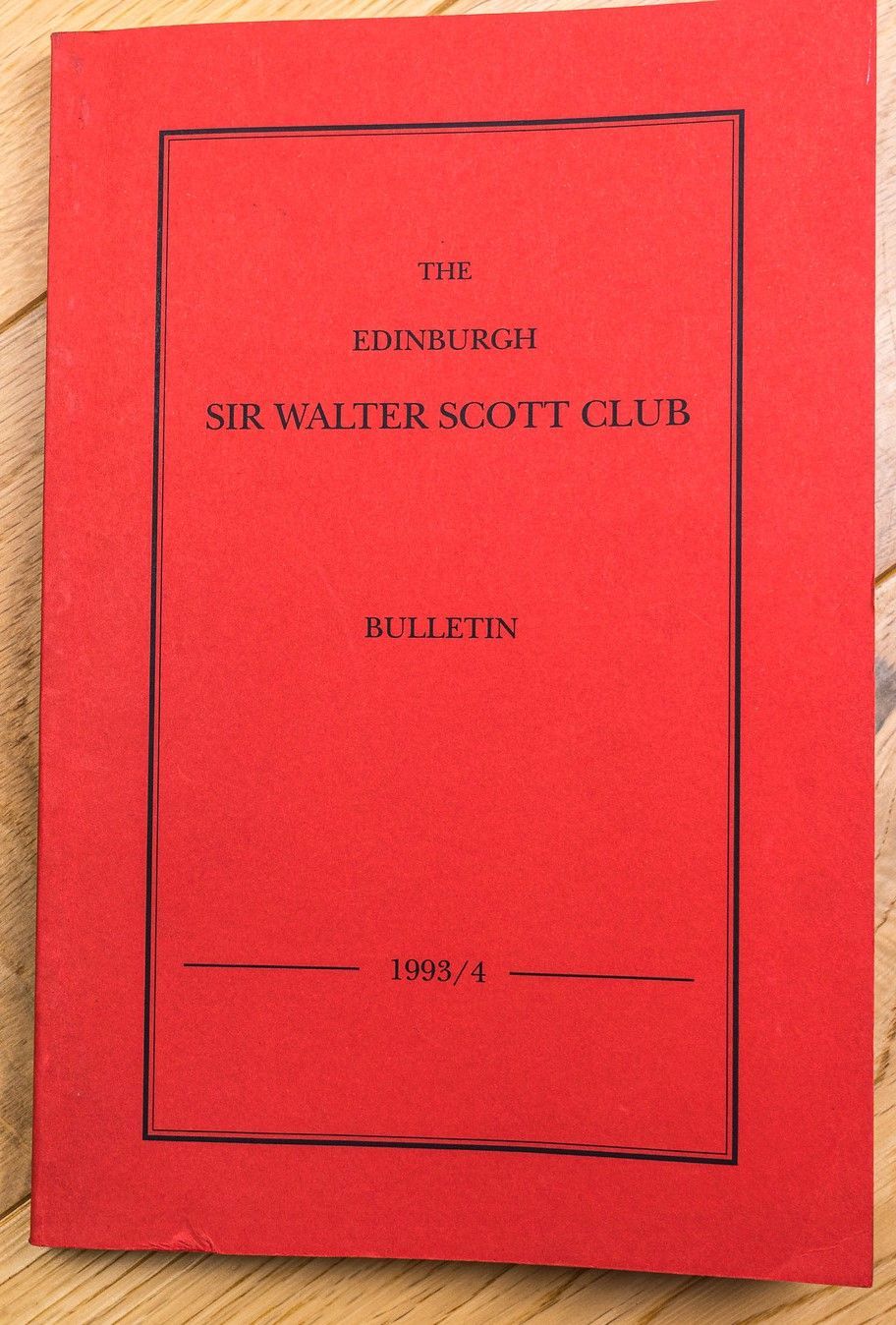Irreverent Reveries (1946-1971)
Allan Frazer
Article from 1994 Bulletin
Summary of the Article:
Allan Frazer reflects on his experiences as Honorary Secretary of the Edinburgh Sir Walter Scott Club during its post-war revival. The piece is a mix of personal anecdotes, reflections on the club's culture, and humorous musings on his role in organizing the club's dinners. Here is a summary of the key points:
- Club's History and Revival: The Edinburgh Sir Walter Scott Club was founded in 1894 and celebrates the legacy of Sir Walter Scott. After being suspended during the two world wars, it was revived in 1946. Frazer, a young solicitor at the time, became the Honorary Secretary and served for a quarter of the club's lifetime.
- Club’s Culture and Formality: In Frazer’s time, the club was a bastion of Edinburgh's social and literary elite. The dinners were formal affairs with strict seating arrangements based on social hierarchy, lineage, and attendance. This formality extended to how the dinners were organized, with Frazer using "Machiavellian" strategies to ensure fairness in seating.
- Mistakes and Missteps: Frazer humorously recalls a disastrous first dinner in 1948 where poor organization, including unheated premises and a malfunctioning sound system, led to an underwhelming experience. He also details some awkward social encounters, such as an ill-considered suggestion for a guest speaker that backfired due to a scandal.
- Personal Reflections and Anecdotes: The article highlights several memorable moments with notable figures like Viscount Wavell, Hesketh Pearson, C.S. Lewis, Malcolm Muggeridge, and Harold Macmillan. These encounters emphasize the mix of wit, gravitas, and personal warmth that characterized the club's atmosphere.
- The Club’s Lasting Influence: Frazer ends on a sentimental note, reflecting on the kindness and camaraderie within the club. He suggests that despite its old-fashioned formality, the spirit of the club—rooted in the generosity of its members and the legacy of Sir Walter Scott—remains alive.
Interesting Points:
- Personal Challenges and Growth: Frazer’s self-deprecating tone shows how he navigated a world where he initially felt out of place. His growth in the role was shaped by both successes and failures, and the generosity shown by the club members allowed him to learn from mistakes.
- A Storied Tradition: The annual dinners of the club were not just social events but high-society spectacles, with complex seating plans and an almost theatrical selection of guests. It was a place where one's social standing was as important as literary prowess.
- Humorous Anecdotes: Frazer’s account of the blunders during the first dinner, including the amusing mishaps with speakers and seating arrangements, adds a human and light-hearted touch to the otherwise formal atmosphere of the club.
- The Enduring Legacy of Scott: Throughout the article, Frazer emphasizes the club’s devotion to Sir Walter Scott, not just as a literary figure, but as a symbol of the club’s traditions and spirit. Despite the club's evolving nature, Scott's legacy remains central to its identity.
This piece provides a fascinating glimpse into the social and literary life of mid-20th-century Edinburgh through the lens of a club that prized both intellectual and social connections.
Download the [Transcript] or Read the [Bulletin]

Download the [Transcript] or Read the [Bulletin]


